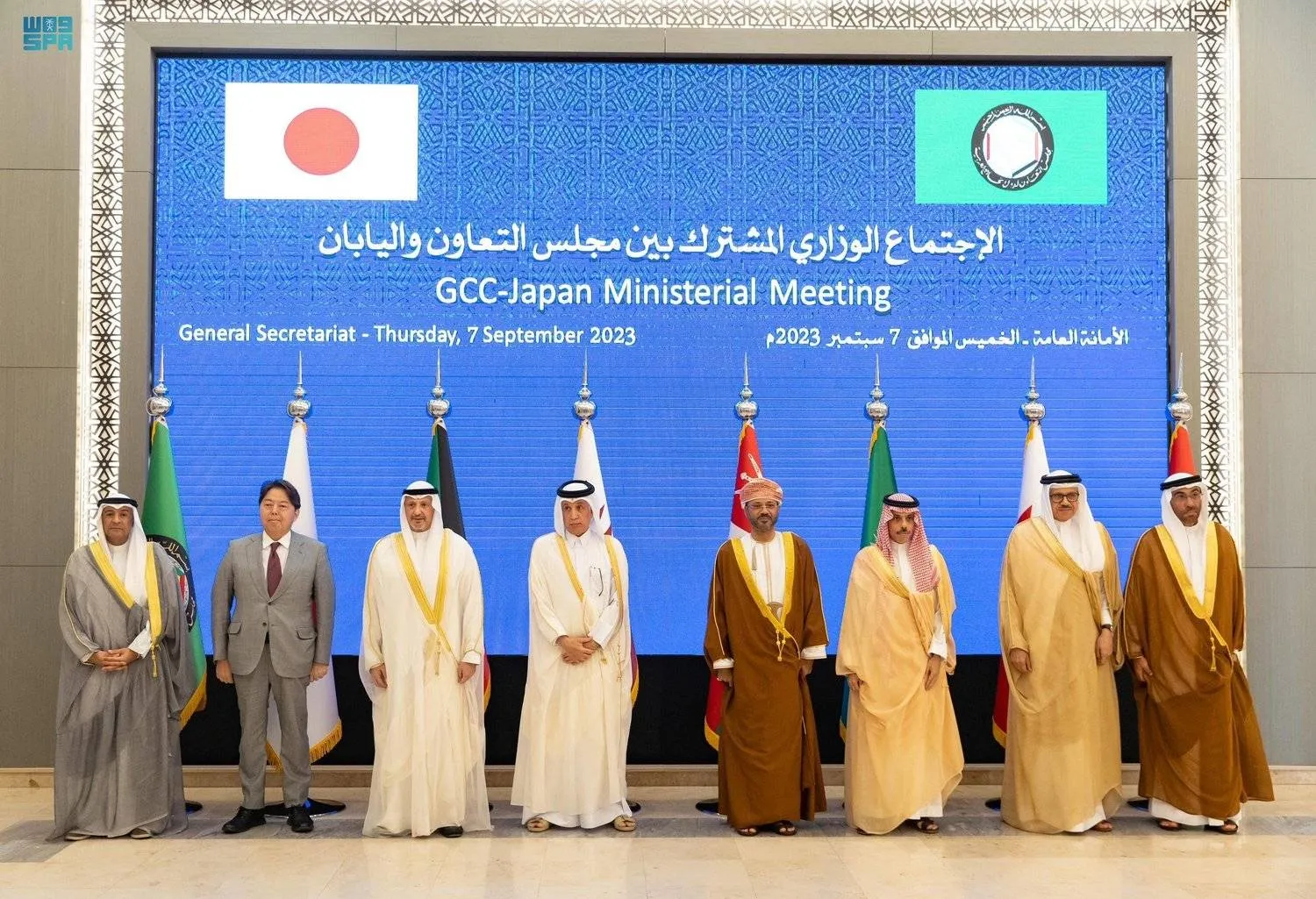The foreign ministers of the Arab Gulf States and their Japanese counterpart approved a joint action plan for the period 2024-2028 that focuses on energy, trade and investment, in addition to political dialogue and exchange.
Omani Foreign Minister Badr Albusaidi emphasized that it was “the right moment to expand relations with Japan, especially in the field of clean green energy and beyond.”
In this regard, he noted that the Gulf countries were drawing a road map for the future through renewable energy sources and the green economy.
During a press briefing following a meeting that brought together Gulf ministers with their Japanese counterpart, Yoshimasa Hayashi, on Thursday in Riyadh, Albusaidi pointed to converging stances in all regional and international files, noting that the two sides recognized the importance of finding peaceful solutions to the challenges ahead.
Describing the visit of the Japanese foreign minister as fruitful, Albusaidi said that the GCC “attaches great importance to strengthening cooperation with Japan, and we consider the Gulf-Japanese relations to be growing over decades.”
He added: “Those strategic relations are characterized by cooperation, coordination, and frank exchange of opinions on many issues.”
The Omani minister pointed to the adoption of the joint action plan between the two sides for the period 2024-2028, saying: “A number of axes and areas have been identified and will occupy the forefront during the coming period, such as renewable energy, the green economy, and how to engage in the transition to green economy and zero carbon neutrality.”
“We believe that there is greater scope to enhance economic cooperation and build on the current volume of trade exchange... to create larger projects in the private sector,” he said, adding: “Trade liberalization between the two sides, if achieved, will undoubtedly have direct positive economic effects, and will encourage work to increase the volume of trade and expand commercial opportunities.”
For his part, Hayashi stated that the partnership between Japan and the Gulf States was not limited to energy, pointing to the increasing importance of the GCC in politics and economy inside the Middle East and in international forums.
He continued: “Today, the international community stands at a historic turning point, and it is not possible to act individually. It is more important than ever to support an open international system based on the rule of law.”
Hayashi said that his meeting with GCC foreign ministers “was very productive and the discussion was frank.”
He also indicated that Japanese economic circles were highly interested in the resumption of free trade negotiations with the Gulf.
For his part, the Secretary-General of the Gulf Cooperation Council, Jasem Al-Budaiwi, affirmed that the Council’s General Secretariat would work to implement the joint action plan, which he said included various fields of cooperation, including energy, trade and investment, health, renewable energy, education, tourism, exchange and joint political dialogue.









